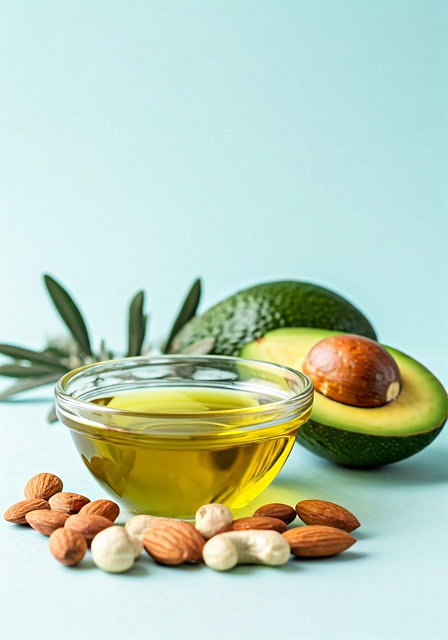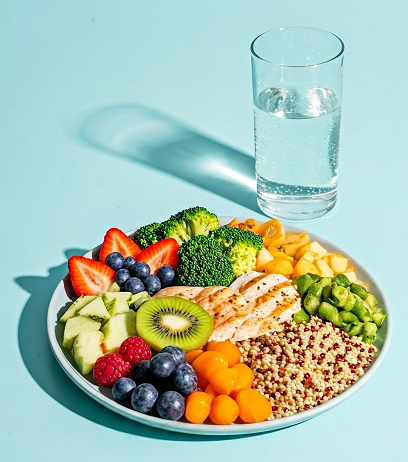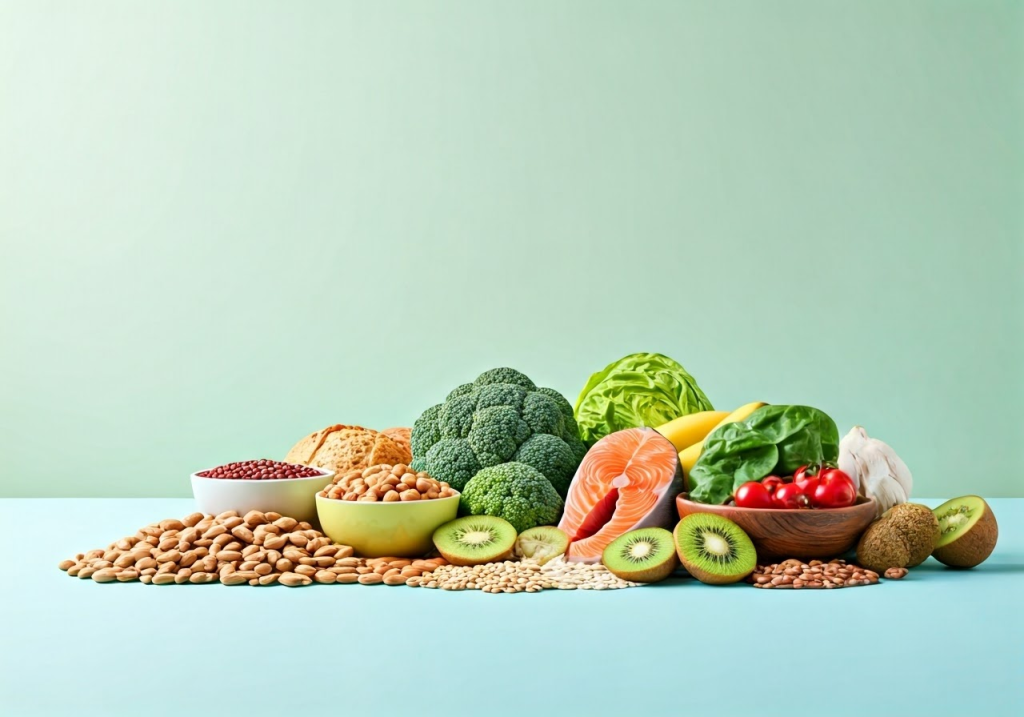Importance of Fruits and Vegetables
Vitamins and Minerals
Fiber is a type of carbohydrate that our bodies can't digest. It's essential for digestive health, helping to regulate bowel movements, prevent constipation, and promote a healthy gut microbiome.
Antioxidants
Fruits and vegetables are rich in antioxidants, which protect our cells from damage caused by free radicals. This helps prevent chronic diseases like heart disease, cancer, and type 2 diabetes.
Weight Management
Fruits and vegetables are naturally low in calories and high in fiber, which makes them a great choice for weight management. They help you feel full and satisfied, reducing the urge to overeat.
Benefits of Whole Grains
1. Fiber
Whole grains are an excellent source of dietary fiber, which is essential for digestive health. They promote regular bowel movements, prevent constipation, and help regulate blood sugar levels.
2. Nutrients
Whole grains are rich in a variety of nutrients, including B vitamins, iron, magnesium, and selenium. These nutrients support energy production, red blood cell formation, and overall well-being.
3. Heart Health
Studies have shown that consuming whole grains can help reduce the risk of heart disease by lowering cholesterol levels and improving blood pressure.
4. Weight Management
Whole grains are filling and satisfying, helping you feel full longer and reducing the urge to overeat. They are also lower in calories than refined grains, making them a healthy choice for weight management.
Lean Protein Sources

Fish
Fish is a good source of lean protein and omega-3 fatty acids. Omega-3s are essential for brain health, heart health, and reducing inflammation. Aim for at least two servings of fatty fish like salmon, tuna, or mackerel per week.

Poultry
Poultry, such as chicken and turkey, is a lean protein source that is low in fat and high in protein. Choose skinless chicken or turkey breast for the leanest option.

Beans
Beans are a great source of plant-based protein, fiber, and iron. They are also relatively inexpensive and versatile, making them a valuable addition to any diet.

Healthy Fats and Oils
1. Olive Oil
Olive oil is a healthy fat that is rich in monounsaturated fats. These fats help lower bad cholesterol levels and protect against heart disease. Use olive oil for cooking, salad dressings, and marinades.
2. Avocados
Avocados are a good source of healthy fats, fiber, and potassium. They are also a versatile ingredient that can be added to smoothies, salads, sandwiches, and more.
3. Nuts and Seeds
Nuts and seeds are a great source of healthy fats, fiber, protein, and vitamins. They are a convenient and portable snack that can help you feel full and satisfied.
Staying Hydrated
Importance
Water is essential for many bodily functions, including regulating temperature, transporting nutrients, and flushing out waste. It's important to stay hydrated throughout the day by drinking plenty of water, especially during exercise or hot weather.
Water Sources
Water can be obtained from various sources, including tap water, bottled water, and fruits and vegetables. Opt for filtered water or bottled water if you are concerned about contaminants.
Signs of Dehydration
Signs of dehydration can include thirst, fatigue, dry mouth, and dizziness. If you experience these symptoms, drink water immediately to rehydrate.
Recommended Intake
The amount of water you need to drink each day will vary depending on your age, activity level, and climate. Aim for at least eight glasses of water per day, but you may need more if you are active or live in a hot climate.

Conclusion and Key Takeaways
By following these guidelines and making conscious choices about what you eat, you can nourish your body and create a foundation for optimal health and well-being. Remember, a balanced diet is not about perfection, but about making healthy choices most of the time. Enjoy the process of fueling your body with wholesome foods and experience the difference it makes in your overall health and vitality.




